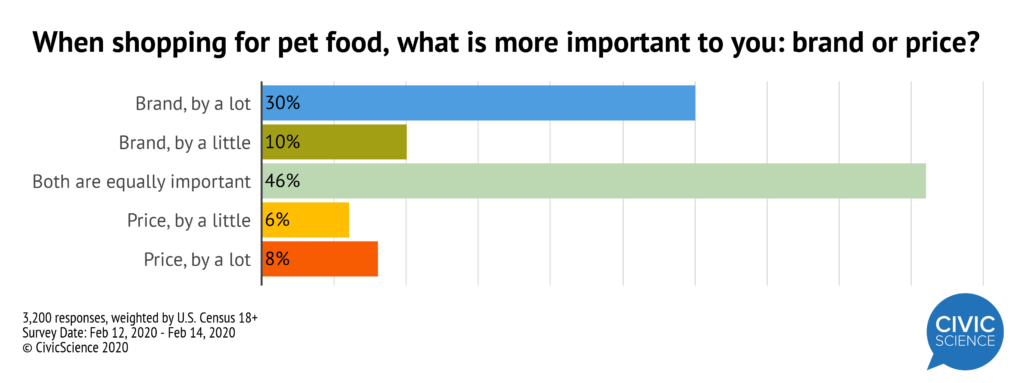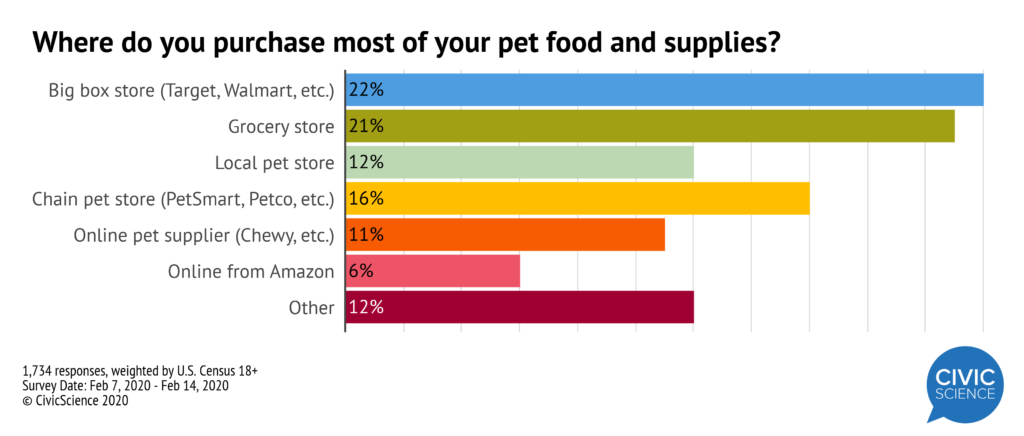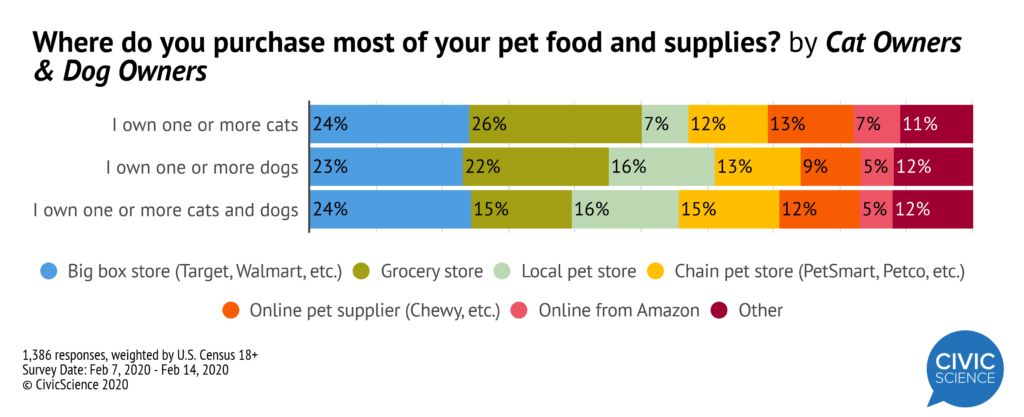It’s hardly news to anyone that a majority of pet owners consider their furry friends part of the family. Last year in 2019, CivicScience polled consumers and found that 77% of pet owners are concerned about the quality of the pet food they purchase. This year in 2020, the same poll question found almost identical results with 76% of pet owners concerned with quality.
The quality-conscious segment has some unique identifiers:
- Women are more likely to be very concerned about the quality of the pet food they buy.
- Those most concerned with quality are more likely to shop with an online pet supplier like Chewy.
- Those who love cooking are more concerned with the quality of pet food that they buy.
- As age increases, the likelihood to be concerned about the quality of pet food that they buy increases with 83% of Baby Boomers concerned to some degree.
- Dog owners care about the quality of pet food 15 percentage points more than cat owners.
- Consumers who value locally-owned establishments are more concerned about the quality of pet food that they buy.
Purchasing Behaviors
The majority of pet owners (46%) value a balance between the brand and the price of the pet food that they decide to purchase. When price or brand is more heavily valued, brand loyalty wins out in the pet food space over price with 40% in comparison to just 14% who care about price first.
When deciding where to purchase their pet food, pet parents are still purchasing their pet food on their grocery runs to big box stores like Target and Walmart (22%) and grocery stores (21%) in 2020. This is on track with the purchasing behaviors of the 2019 poll.
Interestingly, one reason for this is that cat owners are shopping at these locations more, especially at grocery stores (24% of cat owners). Whereas pet owners with at least one dog are over twice as likely to shop at a local pet store than those who just own cats.
The Coronavirus Effect on Pet Purchases
CivicScience conducted an additional poll to understand how pet owners are dealing with the coronavirus (COVID-19) effects on their lives. The most noticeable change was that 17% of consumers are ordering pet food online more than they usually would amidst the coronavirus outbreak.
Overall, pet owners are not overly worried about their pets at this time. While some pet owners are concerned that their pet will contract the coronavirus (30%), a slightly higher amount of 36% are concerned that they will not have enough pet food for the next 3 to 4 weeks. 
While the behaviors of pet owners haven’t changed all that much from this time last year, the consistency in the results of our analysis speak volumes about how much they care about their furry family members. It will be interesting to see the results of the same poll next year.









